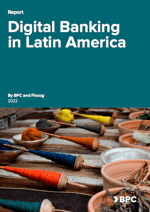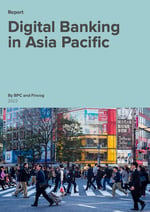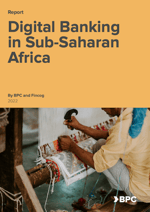A Revolution in Convenience, Choice, and Security
Open Banking, a revolutionary concept, has the potential to transform customer choice, convenience, and security in the financial industry. This article explores the background of Open Banking, its importance in revolutionising finance, and the significant implications it has on the banking market.
Open Banking emerged as a response to the need for increased competition, innovation, and customer empowerment in the financial sector. In Europe, the movement gained momentum with the implementation of the second payment services directive (PSD2) by the European Commission (EC) on January 1, 2018. This directive mandated that banks open their customer channels and data to competitors, mirroring the UK's Competition and Markets Authority (CMA) efforts to introduce more competition into the banking market.
Open Banking holds the potential to revolutionise the financial industry by providing customers with greater choice, convenience, and security. By allowing third-party providers (TPPs) access to customer data, Open Banking fosters competition and innovation, leading to improved services and customised financial solutions. Moreover, it enhances security measures through robust authentication processes, ensuring that customer data remains protected.
The Start of the Open Banking Revolution
The implementation of PSD2 by the European Commission marked the beginning of the Open Banking revolution. This directive aimed to create a more competitive and consumer-centric financial ecosystem. By opening up customer channels and data, banks were required to collaborate with TPPs, fostering an environment of collaboration and innovation.
PSD2's implementation mandated that banks provide access to customer accounts and data to authorised TPPs. It aimed to promote transparency, competition, and customer-centricity in the financial sector. This regulation enabled customers to take control of their financial data and facilitated the development of innovative services.
The introduction of PSD2 brought significant implications for the banking market. It forced traditional banks to adapt to a more open and collaborative environment. With increased competition from TPPs, banks needed to enhance their offerings to stay relevant. This shift encouraged banks to prioritise customer satisfaction, leading to improved services and the development of innovative financial solutions.
Open Banking Market Growth and Adoption
The global Open Banking market has experienced rapid growth and widespread adoption. According to Polaris Market Research, the market was valued at $16.14 billion at the end of 2022, with projected year-on-year growth of 26.8% until 2030. This growth indicates the increasing acceptance and recognition of Open Banking as a transformative force in the financial industry.
Open Banking has already had a significant impact on consumer finance. It has introduced services such as instant payments, credit scoring, refunds, and subscription payments in various countries worldwide. In the United Kingdom, for example, adoption of Open Banking services doubled between 2021 and 2022, with more than 11% of British consumers utilising at least one Open Banking service. The use of Open Banking payments has also been steadily increasing, with a growth rate of approximately 10% per month.
Open APIs: The Heart of Open Banking
Open Application Programming Interfaces (Open APIs) play a crucial role in Open Banking. Open APIs are sets of software code that enable secure communication between banks, customers, and TPPs. Banks act as platforms, enabling customers to engage with TPPs that have been approved and vetted by regulatory authorities. These APIs facilitate seamless integration, enabling the development of innovative financial services and empowering customers with greater control over their finances.
To become a TPP, entities must undergo an application and approval process by a national "competent authority." This authority, often a financial regulator, ensures that TPPs meet the necessary security and compliance standards. Once approved, TPPs gain the licence to engage with banks and develop a range of services, benefiting both customers and the financial ecosystem.
TPPs play a vital role in the Open Banking ecosystem by fostering competition, driving innovation, and expanding customer choice. With their expertise and technology, TPPs develop and deliver new financial services that cater to specific customer needs. Their involvement creates a dynamic environment that encourages banks to improve their offerings and enhances the overall customer experience.
A Promising Outlook for Open Banking
Open Banking holds tremendous potential for transforming the finance industry. With its focus on customer choice, convenience, and security, Open Banking has already made significant strides globally. However, further adoption and innovation are necessary to unlock its full potential. By embracing Open APIs, collaborating with TPPs, and nurturing a customer-centric approach, the financial industry can continue to evolve and offer more inclusive and innovative solutions. Open Banking is not merely a passing trend but a transformative force that will shape the future of finance, benefiting customers and driving innovation in the years to come.





